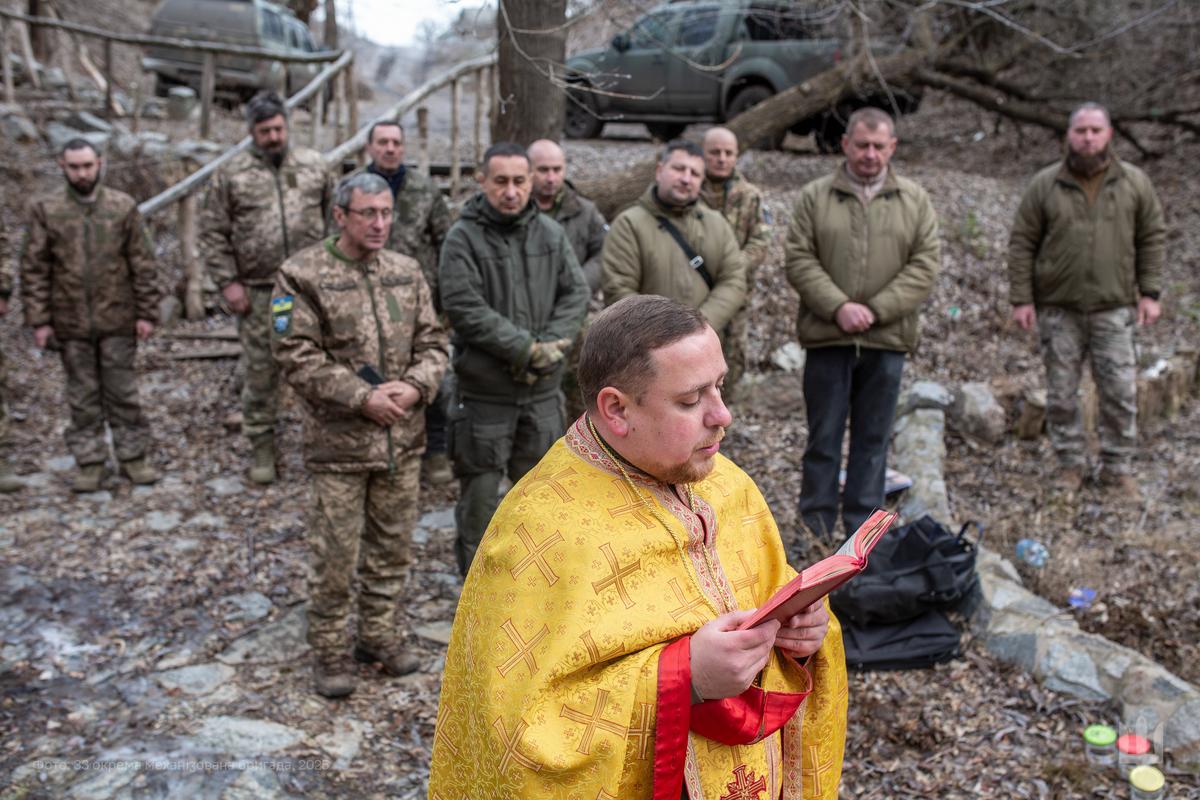
Ukrainian servicemen celebrate Epiphany in the country’s central Dnipropetrovsk region, 6 January 2025. Photo: EPA-EFE/33RD SEPARATE MECHANIZED BRIGADE
The number of Russian soldiers to have been killed in the country’s southwestern Kursk region since the Armed Forces of Ukraine (AFU) attacked and occupied several of its districts in August stands at around 15,000, Ukrainian President Volodymyr Zelensky said on Monday.
In his nightly address to Ukrainians, Zelensky said that the Russian military had suffered around 15,000 “irrecoverable losses” in the Kursk region in the five months since the incursion began, with another 23,000 Russian troops wounded in clashes with Ukrainian forces in that time.
Ukraine continued to “maintain a buffer zone on Russian territory, actively destroying Russian military potential there”, Zelensky said, stressing that the AFU’s foothold on Russian soil helped to ease pressure on Ukrainian forces in eastern Ukraine.
Echoing Zelensky’s words, the AFU General Staff said in a Facebook post on Monday that the Kursk offensive had “forced the Russian occupiers to divert significant resources to the Kursk region, weakening their positions on other fronts” and that the AFU had captured 860 Russian soldiers in the region, “significantly replenishing the exchange fund”.
The operation had also compelled Russia to “urgently request assistance from North Korea”, the General Staff said, adding that some 4,000 of the 12,000 North Korean troops sent by Pyongyang to bolster Russia’s war effort in October had already been killed or injured.
While Russian forces have continued to retake Ukrainian-held villages in the Kursk region since August, the AFU announced on Sunday that it had launched a fresh offensive to strengthen its foothold in the region and that Russia would “get what’s coming for it”.
Zelensky previously described the AFU’s advance into the Kursk region as “a turning point” in the war, adding that its success had been a “feather in the cap” for Kyiv internationally, particularly among countries in the Global South, many of whom had previously believed Russia to be “invincible”.
